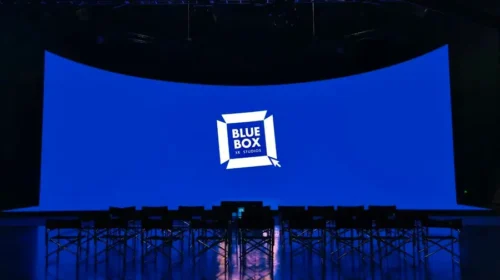Cash-strapped Mirxes looks for lifeline in blood-based cancer detection

The Singaporean company has filed for a Hong Kong IPO, hoping to wow investors with its product that can screen for gastric cancer using blood tests
Key Takeaways:
- Mirex’s blood-based test for gastric cancer is expected to be approved in China by the end of the year
- The company has filed to list in Hong Kong, reporting cumulative losses of more than $120 million over the past three years
By Lee Shih Ta
The blood testing industry suffered a major setback in 2018, when U.S. company Theranos, which was trying to revolutionize the field, was found guilty of massive fraud for overstating what it could do. One of the victims of the fallout was blood-based cancer detection, which searches for markers in the blood that can point to different types of cancer.
Despite the Theranos setback, the technology has continued to advance and could become available to Hong Kong investors with the recent IPO application by Mirxes Holding Co. Ltd. The Singaporean company has developed a micro ribonucleic acid (MiRNA) kit that can detect gastric cancer through blood testing and is currently commercializing the product.
Hoping to wow investors with its story of riches in blood-based cancer detection, Mirxes recently filed for a Hong Kong IPO, with CICC and CCB International as its joint sponsors. The application marks the company’s third listing attempt, following previous ones in April this year and July 2023.
Established in Singapore in 2014, Mirxes is a miRNA technology developer focused on disease screening and diagnostic solutions, according to its latest application document filed last week. The company’s current main money-spinner is its GASTROClears, used for gastric cancer testing. It had two other products in the market, LungClear and Fortitude, and six candidates in pre-clinical development stages.
Mirxes says that GASTROClear, its current product with the best potential, is the world’s first and only in vitro diagnostic medical device approved for gastric cancer screening. The product has a detection rate of 87.5% for stage one gastric cancer, much higher than the 66% detection rate for traditional gastroscopies. The test’s main drawback is its specificity level, which is only 68.4%, far lower than the 99.5% specificity for gastroscopies, which can result in more false positives.
GASTROClear obtained a Class C in vitro diagnostic medical device (IVD) certificate from the Singapore Health Sciences Authority in May 2019 and has been available for sale since then. It has also been received “Breakthrough Device” designation from the U.S. Food and Drug Administration and has received approval in Thailand as well.
In addition to GASTROClear, the company also has two other products that have been approved for sale: LungClear, for lung cancer detection; and Fortitude, a Covid-19 detection reagent.
Former cash spinner
Its strong product mix brought Mirxes a string of major investors in the years after its inception, including Rock Springs Capital, Gaorong Capital, Central Road, and the CR-CP Life Science Fund, which have collectively invested a total of about $170 million. Central Road, with 22.03% of the company’s shares, is controlled by Sun Tongyu, former president of Taobao, one of e-commerce giant Alibaba’s main online marketplaces.
Despite its relative success with blood-based cancer detection, Mirxes is still mired in red ink. Its IPO application shows that the company’s losses grew from $56.64 million in 2022 to $69.23 million last year. The losses look set to continue growing this year, as the company reported a $44.45 million loss in the first half of 2024.
Mirxes’ largely downward revenue trends may be largely to blame for the growing losses. The company recorded $60.65 million in revenue in 2021, but then the figure fell to just $17.76 million and $24.19 million in 2022 and 2023, respectively. It fell another 3.3% year-on-year in the first half of 2024 to $9.57 million.
The downward slope owes to Fortitude – or the lack of staying power for the company’s former star product. While the Covid-19 detection reagent was once the company’s cash cow, demand has fallen rapidly with the receding of Covid and end of the pandemic. The resulting loss of revenue, combined with ongoing R&D and marketing expenses, have been the main culprits behind the rising losses.
The company’s infectious diseases business, with Fortitude at its core, accounted for as much as 89.6% of Mirxes’ revenue in 2021 at the pandemic’s height. But that figure had fallen to just 27.2% in the first half of 2024. Meanwhile, GASTROClear and related services generated $2.67 million in revenue during the first half of this year, up 61% year-on-year. As its revenue grew, GASTROClear’s contribution to Mirxes’ total rose from 2.2% in 2021 to 28%, surpassing Fortitude.
The company’s biggest revenue source is currently its “Precision Multi-Omics Services,” which provide testing solutions to bio-pharmaceutical companies, government organizations and schools. That business accounts for about 44.1% of its total. By comparison, its LungClear business only contributes 0.7%.
Set for China launch
Mirxes currently draws most of its revenue from its base in Southeast Asia, which accounted for more than 70% of its total last year. Its key to hitting the big leagues will lie in its ability to take its blood-based cancer detection products into larger markets, including the huge China market.
GASTROClear is already looking in that direction, having completed a prospective registration clinical trial involving 9,472 cases in China in 2023, and submitting an application to the country’s National Medical Products Administration (NMPA) to register and list the product. The company expects GASTROClear to be approved by the end of this year, which would pave the way for its China launched in the first half of 2025, Mirxes said.
Such approval, if completed on schedule, could be a saving grace for Mirxes as its cash runs dangerously low. At the end of September, the company had just $2.78 million in cash and cash equivalents, down 81% compared to $14.7 million at the end of last year. And with $14.87 million in net current liabilities, the company is clearly in need of funds.
When it comes to testing for stomach cancer, gastroscopy remains the gold standard for the industry, currently recognized by the medical community as the most reliable method. Blood tests are still a more auxiliary product, having yet to fully earning the community’s trust. That means such tests are unlikely to replace gastroscopies overnight, and investors may want to temper their expectations for Mirxes’ gastric cancer tests.
Cancer screening is also nothing new to Hong Kong investors. New Horizon Health (6606.HK) was China’s first cancer-screening device company to go public in 2021. But the company delayed its audit this year due to suspected sales irregularities, and the stock has been suspended since the end of March. Its share price has plunged 82% from its historical high before the suspension.
Mirxes probably doesn’t need to worry about such issues just yet, since it’s not even listed and has yet to prove that its core products can generate major revenue. Accordingly, approval from the Chinese regulator for GASTROClear would represent a major advance for the company, helping to lure investors to its listing.
To subscribe to Bamboo Works free weekly newsletter, click here






